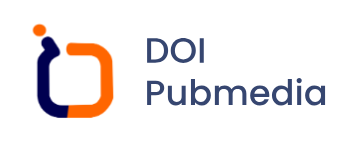The Digital Education based on Public Innovation in Developing a Sustainable Agribusiness Ecosystem
DOI:
https://doi.org/10.69812/jgs.v2i1.105Keywords:
Digital Education, Public Innovation, Rural DevelopmentAbstract
This research addresses persistent challenges in Indonesia’s agribusiness sector, including limited access to information, climate change, market fluctuations, and unequal technological adoption. The study aims to design a public innovation model integrating digital education to foster a sustainable agribusiness ecosystem. Employing a qualitative descriptive method, data were obtained through an extensive literature review of scholarly works, policy documents, and reports from international organizations. Thematic analysis and triangulation were applied to identify patterns, challenges, and best practices. The resulting model, Agro-EduHub 5.0, is a community-based hybrid platform linking education, smart farming technology, digital marketing, and multi-stakeholder collaboration. Key features include a hybrid governance model, hyperlocal AI language support, NFT-based incentives, predictive policy dashboards, creative economy villages, agricultural incubators, and CSR-led pilot projects. These innovations address the digital divide, enhance local adaptability, and encourage environmentally friendly practices. The model fosters active participation, cultural relevance, and policy responsiveness, strengthening both resilience and farmer empowerment. It concludes that implementing Agro-EduHub 5.0 through pilot regions and a digital agribusiness consortium will accelerate technology adoption, integrate local wisdom, and promote shared value creation between public and private sectors, ultimately supporting inclusive and sustainable agribusiness transformation.
Downloads
References
Aker, J. C. (2011). Dial “A” for agriculture: A review of information and communication technologies for agricultural extension in developing countries. Agricultural Economics, 42(6), 631–647. https://doi.org/10.1111/j.1574-0862.2011.00545.x
Ansell, C., & Torfing, J. (2014). Public innovation through collaboration and design. Routledge.
Bason, C. (2018). Leading public sector innovation: Co-creating for a better society (2nd ed.). Policy Press.
Baumüller, H. (2018). The little we know: An exploratory literature review on the utility of mobile phone-enabled services for smallholder farmers. Journal of International Development, 30(1), 134–154. https://doi.org/10.1002/jid.3314
Chiarini, A., Belvedere, V., & Grando, A. (2021). Industry 4.0 strategies and technological developments for digital transformation in small and medium manufacturing enterprises. Business Process Management Journal, 27(2), 473–492. https://doi.org/10.1108/BPMJ-04-2020-0173
Fabregas, R., Kremer, M., & Schilbach, F. (2019). Realizing the potential of digital development: The case of agricultural advice. Science, 366(6471), eaay3038. https://doi.org/10.1126/science.aay3038
Food and Agriculture Organization of the United Nations (FAO). (2022). Digital agriculture: Supporting farmers through digital transformation. https://www.fao.org/documents/card/en/c/cc3416en/
Foster, C., Heeks, R., & Nugroho, Y. (2022). Digital public infrastructure for inclusive innovation in developing countries. Information Technology for Development, 28(2), 346–366. https://doi.org/10.1080/02681102.2021.2007283
Heeks, R. (2018). Information and communication technology for development (ICT4D). Routledge.
Klerkx, L., Jakku, E., & Labarthe, P. (2019). A review of social science on digital agriculture, smart farming and agriculture 4.0: New contributions and a future research agenda. NJAS: Wageningen Journal of Life Sciences, 90–91, 100315. https://doi.org/10.1016/j.njas.2019.100315
Mazzucato, M. (2018). The entrepreneurial state: Debunking public vs. private sector myths (Revised ed.). Penguin Books.
Mendoza, G. A., Prabhu, R., & Overmars, K. P. (2020). Participatory modeling and multi-criteria decision analysis: New tools for sustainability science. Sustainability Science, 15(6), 1501–1515. https://doi.org/10.1007/s11625-020-00788-3
OECD. (2020). Digital opportunities for better agricultural policies. OECD Publishing. https://doi.org/10.1787/571a5f53-en
Porter, M. E., & Kramer, M. R. (2011). Creating shared value. Harvard Business Review, 89(1/2), 62–77.
Pretty, J., Toulmin, C., & Williams, S. (2010). Sustainable intensification in African agriculture. International Journal of Agricultural Sustainability, 9(1), 5–24. https://doi.org/10.3763/ijas.2010.0583
Rotz, S., Gravely, E., Mosby, I., Duncan, E., Finnis, E., Horgan, M., ... & Fraser, E. D. G. (2019). Automated pastures and the digital divide: How agricultural technologies are shaping labor and rural communities. Journal of Rural Studies, 68, 112–122. https://doi.org/10.1016/j.jrurstud.2019.01.023
Spielman, D. J., & Birner, R. (2008). How innovative is your agriculture? Using innovation indicators and benchmarks to strengthen national agricultural innovation systems. Agricultural and Rural Development Discussion Paper 41, World Bank.
Susilowati, S. H. (2020). Peran partisipasi petani dalam keberhasilan teknologi informasi pertanian. Jurnal Agribisnis Indonesia (Journal of Indonesian Agribusiness), 8(1), 31–40. https://doi.org/10.29244/jai.2020.8.1.31-40
Suthipol, A., & Ussawarujikulchai, A. (2020). Digital literacy and smart farming in Thailand: Policy development and practical implementation. Asian Journal of Agriculture and Development, 17(2), 1–14. https://doi.org/10.37801/ajad2020.17.2.1
Wolfert, S., Ge, L., Verdouw, C., & Bogaardt, M.-J. (2017). Big Data in Smart Farming–A review. Agricultural Systems, 153, 69–80. https://doi.org/10.1016/j.agsy.2017.01.023
Zhang, Y., Zhang, M., & Wang, L. (2016). Governance failure and sustainability: Evidence from Chinese agriculture. Journal of Cleaner Production, 134, 455–464. https://doi.org/10.1016/j.jclepro.2015.12.099
Downloads
Published
How to Cite
Issue
Section
License
Copyright (c) 2025 Ilham Komarudin, Abdulkarim Duerawee, Aris Prio Agus Santoso, Retna Dewi Lestari

This work is licensed under a Creative Commons Attribution-ShareAlike 4.0 International License.
You are free to:
- Share — copy and redistribute the material in any medium or format for any purpose, even commercially.
- Adapt — remix, transform, and build upon the material for any purpose, even commercially.
- The licensor cannot revoke these freedoms as long as you follow the license terms.
Under the following terms:
- Attribution — You must give appropriate credit, provide a link to the license, and indicate if changes were made . You may do so in any reasonable manner, but not in any way that suggests the licensor endorses you or your use.
- ShareAlike — If you remix, transform, or build upon the material, you must distribute your contributions under the same license as the original.
- No additional restrictions — You may not apply legal terms or technological measures that legally restrict others from doing anything the license permits.















